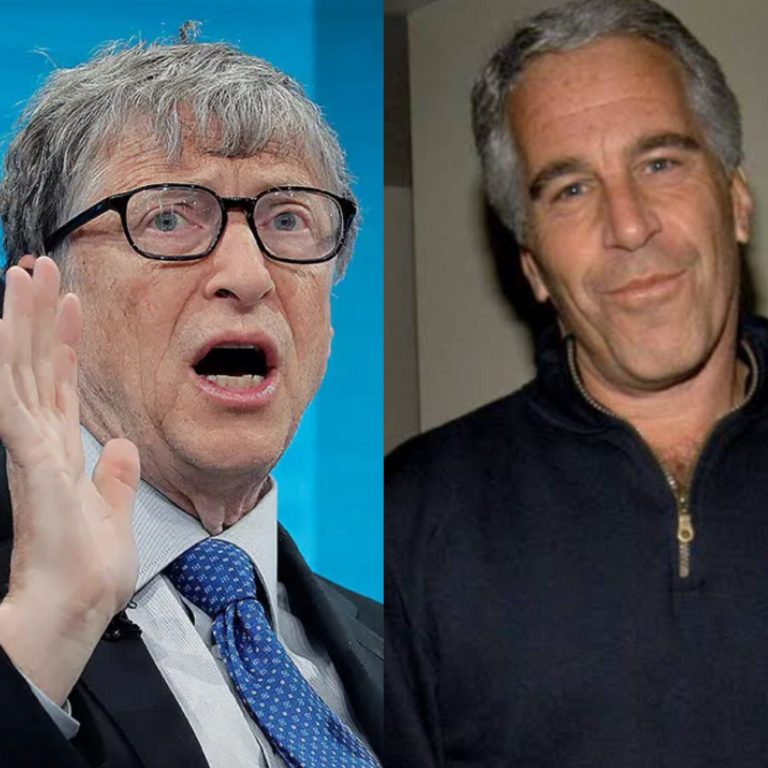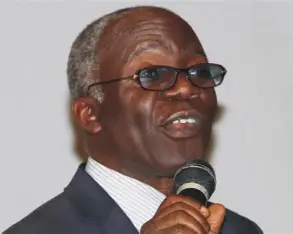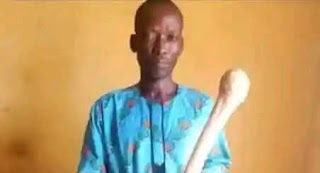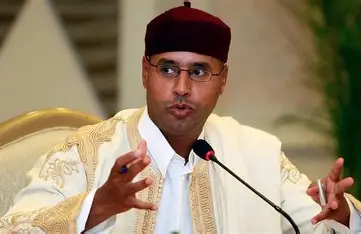
Deep-seated animosity among its leaders and political class, self-aggrandisement, greed, lack of strategic engagement, and inability to secure the endorsement of dominant political parties at elections, among other issues, have been identified as factors working against the Igbo political elite’s quest for the Presidency more than 23 years after the nation returned to democratic rule.
In the build-up to the 2023 general elections, the South East region expressed the belief that it’s the region’s turn to produce the president of the country.
Even though some socio-political groups and individuals outside the region share the sentiment and even supported the dream, some political schools of thought within and outside the region believe that the Igbo may never realise their quest to lead the country owing to several factors, chief among which is the deep-seated division within its rank.
The recent diatribe against the presidential candidate of the Labour Party (LP), Mr. Peter Obi, by Governor Chukwuma Soludo of Anambra State on the former’s chances of winning the 2023 presidential election, and how his (Obi’s) run may negatively affect Igbo chances in the future, has further exposed fault lines within the region.
Thus far, the closest the South East has got to taking the reins was in 1979 when the late Dr. Alex Ekwueme emerged as the Vice President, after his party, the National Party of Nigeria (NPN) won the election that produced Alhaji Shehu Shagari as president.
Tracing the political journey of the region, which he noted has been marked with “betrayals and inconsistencies,” a former Secretary General of Ohanaeze Ndigbo, Chief Nduka Eya, stated that another attempt that could have given an Igbo man the opportunity to lead the country was thwarted in 1999, when Ekwueme, who was favoured to pick the presidential ticket of the Peoples Democratic Party (PDP) was dropped in the last minute, at the national convention of the party for Chief Olusegun Obasanjo, who eventually won the election.
Eya, a former resident electoral commissioner, noted that the desire to pacify the South West and sustain the unity of the country after Chief Moshood Kashimawo Abiola (MKO), the presumed winner of the 1993 election, was denied, led to compromises among the military and political class that threw up Obasanjo, whom he added was nowhere near the struggle for, and in no way instrumental to the return to democracy in the country.
“As a matter of fact, Obasanjo was drafted from prison. In their desire to continue to support the unity of the country and contribute to its development, Igbos overwhelmingly voted for Obasanjo and his party, the PDP and he won. Remember also that in the All People’s Party (APP), Dr. Ogbonnaya Onu had won the ticket, but it was in the desire to sustain the oneness that he also jettisoned the ticket for Olu Falae (another southwesterner), who contested against Obasanjo in what was then regarded as Southwest Vs Southwest,” he said.
Eya explained that aside from sacrifices and compromises, the Igbo had supported any cause that could unify Nigeria, as well as political quests by other regions to produce the president “even against her intentions.”
However, beyond the compromises, he declared that internal strife from within, especially among the political class, self-serving interests over the general good of the zone have continued to rob Ndigbo opportunities in Nigeria’s political terrain.
Twenty-three years on, in the current democratic experience, Ndigbo seems to have been quite vocal, more than ever before, that it is her turn to produce the next president after the incumbent, President Muhammadu Buhari.
In advancing this cause, during his address at the inauguration of the South East for Presidency Movement 2023 (SEFORP 2023), its National Coordinator, Rev Okechukwu Obioha said: “Presently, Nigeria is made up of six zones. Since the inception of our democratic political era from Independence in 1960, till date, every other zone produced the premier/president of Nigeria, except the South East Zone. Nigeria has no reason whatsoever to ignore this glaring truth.
“Prominent elements of the zone have severally put their lives on the line to ensure that Nigeria becomes independent. Through these years, several southeastern leaders have cooperated and assisted every head of government and president of Nigeria to reach the enviable heights she has attained today.”
He continued: “Dr. Nnamdi Azikiwe fought for our Independence after (Herbert) Macaulay. Dr. Alex Ekwueme co-founded and ran G18, G34, which later gave birth to the PDP. Despite his prime role in realising Nigeria’s independence, Dr. Nnamdi Azikiwe became a mere ceremonial president of independent Nigeria. After forming the PDP, the party he formed denied Dr. Alex Ekwueme the presidential ticket; yet he remained loyal and served to ensure the unity of Nigeria.
“The South East Zone has been boiling and heated after the Nigeria Civil War because of injustices, marginalisation, suppression, and neglect. The zone, therefore, needs to be assuaged. It was done for the South West, and for South-South; as the pendulum of power swings back to southern Nigeria in 2023, can anyone show the reason why the South East should be denied the seat of power?”
The President General, Ohanaeze Ndigbo, Prof. George Obiozor, shared a similar viewpoint when he declared that: “A Nigerian President of Igbo extraction is imperative, and an idea whose time has come,” adding that, “our history and political reality makes it a national necessity, which is anchored on equity, justice, and fairness. It is a signal of healing and uniting the nation.”
While noting that in 1999, the country, for the purpose of healing the nation, and creative use of crisis and conflicts, yielded the presidency to the South West, he called on “Ndigbo everywhere to make every effort to convince other Nigerians, the political class, and organisations that ours is a righteous cause whose time has come.”
But Oluwole Aguda, a technocrat, and elections operations consultant, in an earlier interview with The Guardian, while assessing the feasibility of South East’s quest for the Presidency shortly, explained that in politics, you sail waters of idealism and realism.
“Certain subjects of political debate are won on a platter of idealism and the South East presidency agitation ticks the boxes there. It is a given fact that the need for national balance in political leadership and the unswerving deficiency of political inclusion of the South East demands restitution. Politics, however, sway societies and their values.
“Today, political players in the South East have not presented a model that makes that goal acceptable to the Kanuri in Borno State, or the Fulfude clan in Katsina State. They have been unable to manage opportunities at scale, such that the path becomes tougher rather than easier to tread. There must be articulated agreement from the political leadership of that region on that regional ambition. Do you see it at present? I doubt it. Atiku is a more likely presidential choice of the political elite of the South East than Obi, and until local politics is understood, managed, and developed, the mission will remain a mirage,” Aguda said.
INTERESTINGLY, less than 100 days to the 2023 general elections, the fault lines that have continued to deny the region the opportunity to taste power at the highest level have been reverberating, casting doubts on its readiness and ability to produce the next president, despite its clamour.
Many commentators in the region have described Governor Soludo’s recent comments on Obi’s presidential ambition as part of the calculated efforts to downplay the current presidency initiative of the Igbo.
Soludo recently dismissed Obi’s quest as that borne out of “desperation,” adding that it was not only a waste of effort but unbeneficial to the Igbo.
The former Central Bank Governor advised Obi to return to the All Progressives Grand Alliance (APGA) to help build the party as a regional force instead of carpet-crossing political parties.
Apart from Soludo, Obi has also received similar bashings from the former governor, Chimaroke Nnamani; former state chairman of PDP in Anambra State, Chief San Ulasi, even as LP’s campaigns in the region have continued to face stiff opposition from serving governors and their political parties.
Although he is not the only Igbo that is aspiring to become president next year, he ranks among the top contenders in the race. His joining the Labour Party has thrown up the trappings expected in any political contest, just as he has become a major force with the level of acceptance he has gained in the race.
Some commentators even opine that, in him, the hope that Ndigbo may make the Presidency in 2023 after all, has been rekindled.
Reacting to the opposition to Obi’s candidacy, the governorship candidate of the Social Democratic Party (SDP) in Enugu State, Dr John Nwobodo, observed that this sort of opposition and attacks denied Igbo opportunities in politics in the past, cautioning that there could be a repeat in 2023 if not checked.
He added: “The position may elude Ndigbo principally due to the fact that none of the South East presidential candidates is running on the platform of the two dominant political parties – APC and PDP. The prospect is further hampered due to the absence of a formidable alliance to counteract the dominance of the ruling APC and the major opposition PDP.”
On whether the Igbo were still united in the Presidency cause, Nwobodo said: “Evidence shows that the election of 2023 is proceeding along party lines than along ethnic lines.”
The former National Chairman of the defunct United Progressives Party (UPP), Chief Chekwas Okorie, on his part, observed that until Ndigbo, especially their political leaders, the intelligentsia and business/traditional leadership converge to take a cold, hard look at their peculiar circumstance in Nigeria, the actualisation of a Nigerian president of Igbo extraction will remain a pipe dream.
Okorie told The Guardian: “Igbo political leaders are yet to imbibe the attitude of constructive engagement and effective lobby within political parties where they belong, to secure the collaboration of non-Igbo political stakeholders to buy into South East’s presidential aspiration. This kind of engagement and lobbying is better done collectively rather than individually. The lack of strategic engagement has been the bane of Igbo politics in Nigeria.”
He recalled his efforts at helping Igbo to actualise the Presidency thus: “It is public knowledge that I am unarguably the longest standing advocate of a Nigerian president of Igbo extraction. I have led this advocacy over the years using various socio-cultural associations including the Igboezue Cultural Association, and at some other times, I pushed it through the Ohanaeze Ndigbo where I am a foundation member. I even founded a political party 20 years ago (in 2002 to be precise), the APGA for the same purpose.
“APGA was envisioned as a national political party to constructively engage other political parties and blocs to actualise the agenda for a Nigerian President of Igbo extraction. The positive outlook of a possible credible, and transparent general election process, and unprecedented voter consciousness, as well as the groundswell of public opinion, is that it is about time the South East geopolitical zone was supported to produce the president of Nigeria in 2023, in the interest of national unity, equity, and justice.
“Unfortunately, every attempt to turn on this machine has been sabotaged by some unscrupulous and unconscionable Igbo political turncoats who always make themselves available to be used against their people for a pittance. This malaise has often exposed Ndigbo to ridicule as unserious and politically naive. Nigeria’s march to full-blown democracy is still nascent and characterised by ethnic, religious, and sectional sentiments and considerations. The ideological thrust and contents of the manifestos of political parties and their candidates are yet to influence and attract winning votes during elections,” he said.
On the way forward, he noted: “Ndigbo constitute the only ethnic nationality in Nigeria with the largest population and geographical spread across all the states of the federation. Studies have proved that Ndigbo if consciously and meticulously mobilised and sensitised, can contribute up to 25 per cent of the voting population of most states of Nigeria. Ndigbo at home and in the Diaspora are connected through a network of town unions, market/professional associations, etc. This network is built into what I have always referred to as the Igbo grid.”
Dr. Jasper Uche, a lecturer in the Department of Political Science, University of Nigeria, Nsukka (UNN), also shed some light on why it is difficult to get a unifying personality in Igbo Land, as was the case during the First Republic.
According to him: “We now have more politically exposed people because of the republican nature of Ndigbo. It is important to say that even during the time of (Nnamdi) Azikiwe, he had a little brush with Dim Odumegwu Ojukwu during the Nigerian Civil War. Zik did not openly identify with the secessionist struggle, and neither did Ojukwu consult him before declaring the war. Even when Ojukwu had the problem of declaring secession, people like Jerome Udoji, as a permanent secretary could have helped him. But Ojukwu decided to go it alone. So, we had flash personality clashes even at that time when we had few people.
“Today, because we have leadership gaps in Igboland, any individual that rises to power, or could speak truth to power, Ndigbo usually rally around them. That is because of the sense of marginalisation that has gone on for years. But Peter Obi is filling that gap for two reasons: one is that every Igbo man that has a conscience thinks that 2023 is the turn of the Igbo to produce the president and the fact that parties have in their constitution rotation of power between the north and south. Obi has a message that Nigerians like, which is moving us from consumption to production.
“Again, the problem of Igbo is beyond sentiments. They see Obi as a rallying point at the moment; they see him as the unifying factor. But no matter how you look at it, it does not mean that the brushes will not be there.”
(Guardian)








